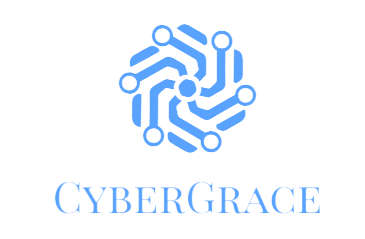You have hired an SEO consultant for your e-commerce site. You’re excited to have a sit down with your SEO consultant from Salt Lake City to discuss how you can take your business to greater heights. Everything started great until he started to get technical. So you just nod and hope you will just be able to understand the jargon that he uses.
You hired an SEO consultant for a purpose. You want to increase the traffic to your site and increase your sales. To be able to work together effectively, you must understand each other. You must have a fair grasp of what your SEO consultant does and how he does it.
The role of your SEO consultant is complex and covers different marketing disciplines. He will analyze and review your website’s search engine performance. From this analysis, your consultant will give you advice, guidance, and recommendations so that your site will rank higher.
Here are some of the things that your SEO consultant will do:
- Identify your marketing objectives
- Optimize your website
- Keyword analysis and mapping
- Improve Google ranking and visibility
- Improve your conversions
- Diagnose and resolve technical issues
- Conduct local SEO
- Website audit
- Write compelling copy for your website
- Content development
- Improve Call-to-Actions
- Web design and development
- Off-site SEO
- Content Distribution
- Apply advanced SEO techniques
Here are some of the jargon that SEO experts use. Be familiar with them so that the next time you talk with your SEO consultant, you will be on the same page.
310 Redirect
A 301 redirect allows you to redirect the visitor to another page. It will enable you to change your web address without affecting how previous visitors will reach you. It automatically redirects the old page to the new page.
Anchor Text
This refers to the text that contains a link to another location or site. It is usually blue and underlined and turns purple if you have already clicked on it.
Analytics
These are tools used to track the activities of your site visitors and where they come from. These tools allow your SEO consultant to identify which part of your site gains the most activity and attention.
Canonical URL
It is the best address where a user can find specific information. It is the URL that the search engine thinks is the best representation of a set of duplicate pages on your website. For example, you have a product that exists under two categories and two URLs. Choosing one as your canonical URL tells search engines which URL to show in search results.
Call to Action (CTA)
A CTA prompts the visitor to take action, such as signing up for a newsletter or making that purchase.

Conversion Form
A conversion form collects information from your site visitors, converting traffic to leads.
Content Management System (CMS)
It is a platform that provides web developers with the tools to create, edit, and publish content. WordPress and Drupal are just some examples of a CMS.
Fold
The fold refers to the point on your website where the page gets cut off at the user’s screen. Visitors can scroll down to see what’s beneath the fold.
Link Equity
It refers to the authority of the external and internal links that connect your site to other places on the web. The factors that affect link equity include page authority and page rank.
Link Building
Link building is the process of acquiring inbound links from other sites to your own website. This is one of the most challenging parts of SEO. The SEO expert who masters the art of link building is ahead of the game.
Long-tail Keyword
A long-tail keyword is a longer and more specific keyword. Long-tail keywords are more targeted and have a higher conversion rate compared to the usual keywords.
Link Rot
When you remove or reorganize some pages, their links might return an “Error 404”. Link rot or link death can affect your link equity.
Metadata
Metadata is the data that gives search engines information about your website.
Meta Description Tag
It refers to the text of 160 characters or less that gives a brief explanation of the web page’s content. Search engines display the meta descriptions on search results. You can use this as a way to catch the attention of your target customers.
PPC
Pay-per-click is an advertising method where the advertisers pay each time their ad is clicked.
RSS Feed
Standing for Really Simple Syndication, RSS is a subscription-based method to get updates on new site content. It helps your followers stay up to date with your site.
SERP
SERP or Search Engine Result Page is the page that you see in your search engine after you have entered your keywords. You would want to be on the first page of a SERP.
White-hat SEO
White hat SEO is also known as ethical SEO. It refers to the optimization techniques and strategies that focus on a human audience, following search engine rules and policies.
Good SEO is essential to the success of your website and your business. Seeking the help of an SEO consultant is a worthy investment that your business will thank you.

